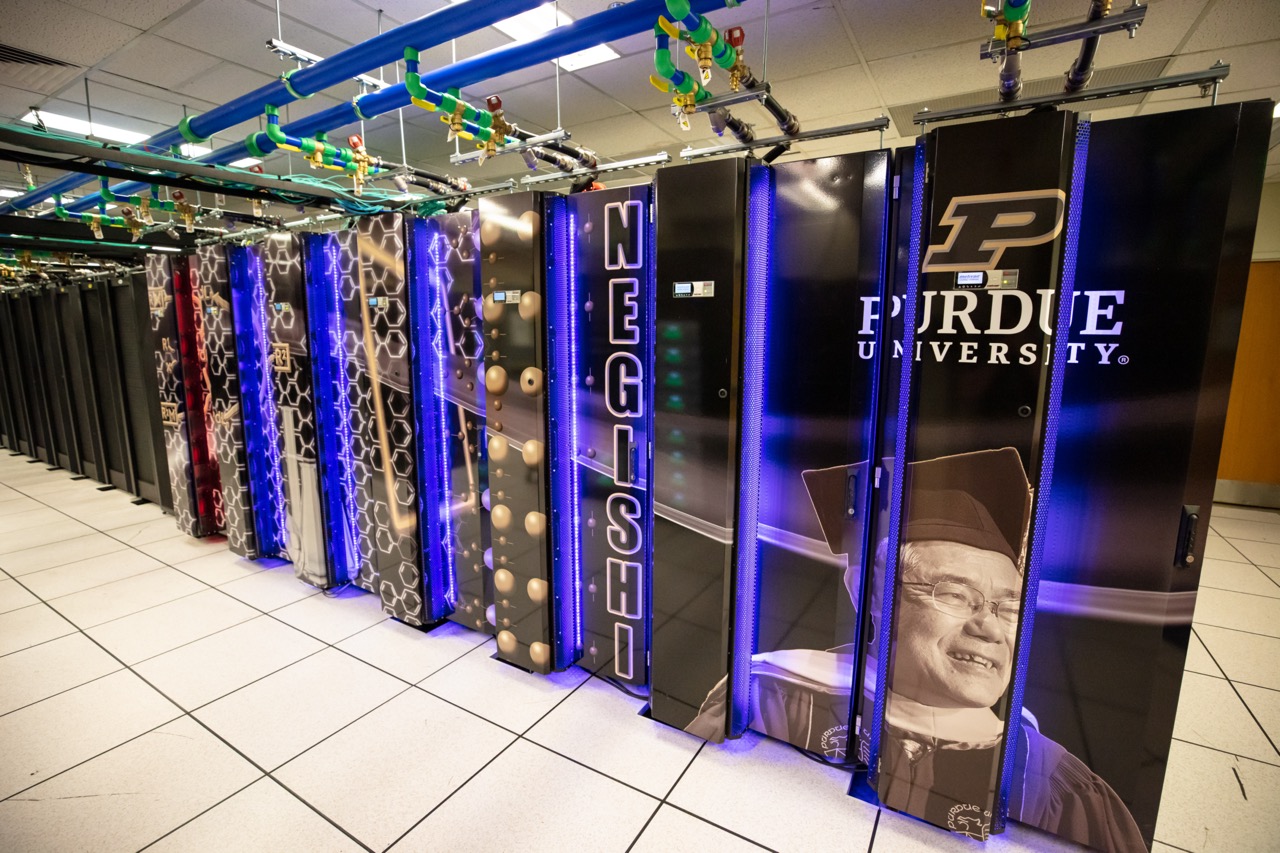Negishi supercomputer now available for faculty use
The Purdue Rosen Center for Advanced Computing (RCAC)’s latest research supercomputer, Negishi, is now available for faculty use.
Negishi, which is optimized for traditional, tightly-coupled science and engineering applications, was built through a partnership with Dell and AMD in 2022. Negishi consists of 460 Dell PowerEdge compute nodes with two 64-core 3rd Generation AMD EPYC “Milan” processors (128 cores per node) and 256 GB of memory, six large memory nodes with 1 TB of memory, and 15 AMD Instinct M1210 GPUs.

Negishi is named in honor of the late Ei-ichi Negishi, the Herbert C. Brown distinguished professor of chemistry and the winner of the 2010 Nobel Prize in chemistry. The Negishi supercomputer was dedicated in a February 2023 ceremony featuring campus leaders including Purdue President Mung Chiang and members of the Negishi family.
There are 68 research groups who have already been onboarded to Negishi cluster through an Early User Program (EUP) and have received individualized assistance from RCAC consultants with corresponding domain knowledge. An accelerated weekly maintenance cycle during the EUP greatly helped in deploying new features quickly and reliably.
Tonglei Li, the Allen Chao Chair and Professor of Industrial and Physical Pharmacy, has used Negishi to develop a novel deep-learning concept, Manifold Embedding of Molecular Surface (MEMS), to predict molecular properties and functions and to design molecular and supermolecular structures by machine intelligence.
“The state-of-the-art capabilities of Negishi have allowed me to calculate the quantum information of tens of thousands of molecules within a short period of two months and predict drug developability including solubility, drug-induced liver toxicity, and liver enzymatic activities against drug molecules,” says Li.
Researchers at Purdue can now purchase capacity in Negishi through the RCAC cluster orders website and it has a six-year lifespan. Negishi delivers the lowest cost per FLOP of any community cluster system to date.
Negishi is part of Purdue’s community cluster program, which is now in its 18th year and serves more than 220 active partners from 60 departments and all three Purdue campuses. 61% of Purdue’s grant awards last year were awarded to faculty using high-performance computing.
To learn more about Negishi or other RCAC resources, contact rcac-help@purdue.edu.
